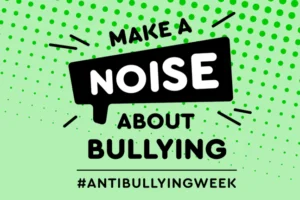With families now staying home to isolate themselves from infection, there are a number of new challenges and opportunities on the horizon for parents and carers. Either way, before any advice or quick action it’s important to let the new pattern of life settle in. Identifying how technology can help or hinder children is the same now as it is at other times. It requires we pay attention to what they need and listen to how they’d like to connect.
The first thing to consider using to help children stay connected to each other and to family members in other places is the technology that they are already familiar with.
Making video calls safe and simple
Skype, WhatsApp, FaceTime and Facebook Messenger Calls are a good way to have a two-way video call. With some assistance, grandparents can get this set up and have a new way to talk to family members. Although it might not seem all that different to a phone conversation, adding video really does make it feel more like you are in the same place.
It’s important to note that these services are not built for children and to use them you need an adult account. This means that parents need to be present and set things up for their children to gain access.
Think about permissions and boundaries
But more than just access to this technology it’s important to ensure that each person your child is connecting with has got permission from an adult and is conducting the conversation in a shared family space. Particularly if your child is younger, it’s important to contact their friends’ parents and carers to discuss how communication will work.
This means that an important step for your child’s connection to their classmates while away from school is to be proactive in contacting the parents of children in their class. Setting up a parent and carer WhatsApp or Facebook group can be a good way to do this.
Interactive Calls – to keep children engaged
In addition to simple video conversations, there are a number of options to extend the interactions in creative ways. While using Zoom or Skype for Business can suit work, for children these forms of communication can be quite sterile and off-putting.
One good example is Caribu. This is an app that is simple to install on your smartphone, tablet or computer and enables you to have calls between children and grandparents where the adult can read integrated picture books. It also offers a shared whiteboard space for sketching together and playing games like noughts and crosses.
This takes the interactions into a more game-like space that children are familiar with. If you want to extend this in simple ways you can play Facebook Instant Games with the family. These are quick to start and offer experiences that children of all ages can enjoy, with an adult present to guide their play. They are not designed with children in mind and do include in-app purchases, but with some guidance, they can offer a really nice way to connect while not getting face-to-face time.
Connecting through online video gaming
This brings us to the video games. This is a medium that is easy for parents and carers to miss in terms of finding connection and belonging. Children naturally like to play together while they connect and build friendships. Online video games are a powerful way to do this when they are not able to have direct contact with friends.
Roblox is a great example. Although these games are played with groups of random children, it’s a powerful time to reconnect with other people of a similar age. Whether you choose to Work at a Pizza Place, escape the authorities in Jailbreak or be a hero in Super Hero Tycoon, these are the sorts of games children would otherwise play in the playground.
It’s important that you set up their account via a website with a suitable age, and if they are younger apply the Restricted setting. This ensures they can only play games checked by Roblox developers itself. As well as this, have them play downstairs in shared spaces so you can see any interactions are safe and also share the fun they are having.
Super Mario Maker takes the interaction in a different direction. It’s a game where you can create and share your own Mario levels. Here, children can connect with each other by enjoying what other kids have made. It’s the sort of thing they would do in the classroom, wandering around and seeing what their peers had created.
As well as enjoying other people’s creations they can, of course, make their own games too. It’s easy enough for most ages to try it and at home, there’s the added novelty of trying to get mum, dad or a carer to beat the level you just made.
These are games your children may already know about, but there are many others that offer excellent benefits during this time.
Feather (Mac, PC, Switch) lets you soar through the air with friends online. It’s super simple and beautiful and offers a chance to escape the chaos to find some calm.
Overcooked (Mac, PC, Switch, PS4, Xbox One) is a game where four people work together to cook food in unusual locations. It’s simple and fast and funny. You can play it at home with family, or go online to connect to others or maybe grandparents.
Crossout (PC, PS4, Xbox One) is a more exuberant online game where you build and fight futuristic vehicles. It’s not only a lot of fun but teaches engineering and the laws of gravity.
Sky Children of Light (iOS and Android) lets you run, jump and fly with friends through a beautiful landscape. The game incentivises helping other people. It does have in-app purchases but these are used to acquire things to give away rather than hoard for yourself.
If you want to find more games like this, I’ve created a list of PEGI 3 and PEGI 7 games that you can play online.
As with any new media, these games are best started together in a family, rather than in bedrooms. If there are other games your children are keen to try, or their peers are playing, check the PEGI ratings for more guidance. You can also set-up your console or handheld device with limits to guide how long play sessions last, and ensure you know before any money is spent.
Used in this way, technology, and video games are a really important way we can help children to stay connected. The kids already know this, but the advice here enables you to be more ambitious about the online experiences they share, and broaden the range of imaginative adventures they go on together.






